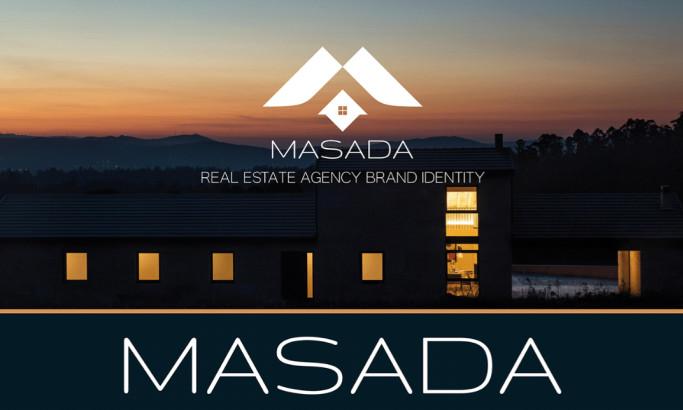
Picture this: your logo is a masterpiece, a shining beacon of your brand identity. But is it really making the impact you want? If you find yourself drowning in a sea of complexity, it might be time to simplify and streamline. Minimalist design is the secret sauce that can elevate your logo from good to great. So grab your virtual paintbrush and get ready to unleash your inner artist as we explore the art of maximizing impact through minimalist logo design.
Choosing the Right Color Palette
So, you’ve decided it’s time to spruce up your space with a fresh coat of paint. The only problem is, you’re faced with the daunting task of . Fear not, dear friend, for I am here to guide you through this treacherous journey of hues and shades.
First things first, consider the mood you want to create in the room. Are you going for a cozy, intimate vibe or a bright, energetic feel? Once you’ve pinpointed the atmosphere you’re going for, it’s time to explore the wonderful world of colors.
Don’t be afraid to think outside the box when selecting your color scheme. Sure, neutrals are safe and reliable, but why not have some fun with a bold accent wall or a quirky color combo? After all, it’s just paint – if you hate it, you can always grab a brush and start over!
Remember, at the end of the day, it’s your space and you should choose colors that make you happy. Whether you opt for a soothing pastel palette or a vibrant rainbow explosion, go with your gut and own it. Who knows, you may just discover a new favorite color along the way!
Streamlining Shapes and Typography
Are you tired of trying to wrangle unruly shapes and uncooperative typography in your design projects? Say goodbye to the days of messy layouts and jumbled text – it’s time to streamline your design process like a pro!
With a few simple tricks and tools, you can achieve clean and polished designs that will impress even the pickiest of clients. Here’s how to do it:
– **Use Grids:** Grid systems are your best friend when it comes to creating clean layouts. They help you align elements with precision and maintain consistency throughout your design. Say goodbye to wonky shapes and misaligned text – grids will keep everything in its rightful place.
– **Simplify Shapes:** Don’t overcomplicate things with complex shapes that are difficult to work with. Stick to basic shapes like squares, circles, and triangles to keep things clean and streamlined. Plus, simpler shapes are more versatile and can be easily manipulated to fit your design needs.
– **Embrace White Space:** Don’t be afraid to give your elements some breathing room. White space is your secret weapon when it comes to creating visually appealing designs. It helps draw attention to key elements and prevents your design from feeling cluttered.
So, next time you’re faced with a design project that seems overwhelming, remember these tips and tricks to streamline your shapes and typography like a pro. With a little bit of practice and creativity, you’ll be churning out sleek and polished designs in no time!
Simplifying Complex Concepts
Have you ever been sitting in a meeting, trying to wrap your head around some complicated concept, only to feel like your brain is about to explode like a shaken soda can? Yeah, we’ve all been there. But fear not, dear readers! We’re here to help you navigate the treacherous waters of complexity and come out on the other side with your sanity intact.
First things first, let’s talk about breaking down those big, scary words that make you feel like you need a PhD just to understand what the heck is going on. **Simplify, simplify, simplify** – that’s the name of the game. Take a deep breath, grab a metaphorical machete, and hack away at all those unnecessary jargon-filled sentences until you’re left with something that even your grandma could understand.
Now, let’s move on to using examples to illustrate those mind-bending concepts. **A picture is worth a thousand words**, after all. So why not throw in a funny anecdote or a ridiculous hypothetical scenario to help drive your point home? Trust us, your audience will thank you for it. Plus, who doesn’t love a good laugh while learning about something as dry as quantum physics?
And last but not least, don’t be afraid to ask questions. **Curiosity killed the cat, but satisfaction brought it back**, right? So if you’re feeling lost in a sea of confusion, don’t be shy about speaking up and seeking clarification. Chances are, someone else is thinking the exact same thing but is too afraid to admit it. Embrace the uncertainty, my friends, and watch as those complex concepts suddenly seem a whole lot simpler.

Embracing Negative Space
When it comes to design, negative space often gets a bad rep. But why not embrace the emptiness, the void, the nothingness that negative space provides? It’s time to throw away the clutter and let negative space shine like the star it truly is!
Think of negative space like a breath of fresh air in a crowded room. It’s the quiet friend at a party who ends up stealing the show with their subtle charm. Negative space allows the eye to rest, to wander, to appreciate the beauty of simplicity. So why not give it the spotlight it deserves?
doesn’t mean you’re a minimalist snob; it just means you understand the power of balance and harmony in design. So go ahead, let your designs breathe, let them speak volumes without saying a word. Negative space is your friend, your ally, your secret weapon in the battle against visual clutter.
So next time you’re tempted to fill every inch of white space with more stuff, take a step back and ask yourself – do I really need all this? Can I let negative space work its magic and elevate my design to new heights? Trust me, your eyes (and your audience) will thank you for it!

Ensuring Scalability and Versatility
When it comes to , businesses need to be prepared for growth and adaptability. Without the ability to scale up and adjust to changing circumstances, companies risk being left behind in today’s fast-paced market.
One way to ensure scalability is to invest in cloud technology. By utilizing cloud services, businesses can easily expand their resources as needed without the hassle of physical hardware upgrades. This allows for quick and seamless growth without the headaches of traditional IT infrastructure.
Another key factor in is having a solid foundation of agile practices. By implementing agile methodologies, teams are able to quickly respond to changing requirements and pivot when necessary. This flexibility is essential in a constantly evolving business landscape.
Ultimately, businesses that prioritize scalability and versatility will be better equipped to handle whatever challenges come their way. By staying ahead of the curve and remaining agile in their approach, companies can position themselves for long-term success in an ever-changing market.
Staying Consistent Across Platforms
Ever feel like you’re juggling chain saws while riding a unicycle when trying to stay consistent across platforms? We get it. But fear not! We’ve got some tips to help make your social media presence as smooth as butter.
First off, let’s talk branding. You wouldn’t show up to a job interview in a tutu and flip flops, right? Well, the same goes for your online presence. Keep your brand consistent across all platforms so people instantly recognize you. Use the same color palette, fonts, and tone of voice. Think of yourself as a superhero with a killer costume – you want to be instantly recognizable.
Next up, posting frequency. Consistency is key here. Don’t post five times a day on Facebook and then disappear from Instagram for weeks. Find a schedule that works for you and stick to it. Whether it’s once a day or once a week, make sure your audience knows when to expect new content from you.
And finally, engagement. Don’t be the kid who never responds to their birthday party invites. Interact with your followers across all platforms. Reply to comments, ask questions, and show them that you’re a real human being (or a really convincing AI). Building relationships with your audience will keep them coming back for more.
FAQs
Question: Why is minimalist design important for a logo?
Answer: Think of it this way – less is more! A minimalist design helps your logo stand out in a cluttered world by focusing on simplicity and elegance.
Question: How can I make my logo more memorable with minimalist design?
Answer: By stripping away unnecessary elements and sticking to a clean, timeless design, your logo will be etched into people’s minds faster than you can say “simplicity is key!”
Question: Is it possible to convey a brand’s message effectively with minimalistic design?
Answer: Absolutely! A minimalist logo doesn’t mean sacrificing your brand’s message. In fact, it can elevate it even further by cutting through the noise and getting straight to the point. Less is definitely more!
Question: What are some common mistakes to avoid when designing a minimalist logo?
Answer: One big mistake is overcomplicating things. Keep it simple, folks! Another one is neglecting the importance of negative space – embrace the blank spaces and let your logo breathe!
Question: How can I ensure my minimalist logo still packs a punch?
Answer: The key is in the details! Pay attention to typography, colors, and shapes – each element should complement the minimalist design and work harmoniously to make your logo pop. Trust me, it’s all in the details!
Time to Elevate Your Logo Game!
Congratulations, you’ve taken the first step towards creating a logo that’s sleek, sophisticated, and sure to make a lasting impression. By embracing minimalist design principles, you’ve set yourself apart from the cluttered competition and ensured that your brand will shine bright like a diamond in a sea of rhinestones.
So go forth, fearless designer, and let your creativity soar. Remember, when it comes to logos, less is always more. Stay minimalist, stay impactful, and watch as your logo takes center stage in the branding world. And hey, if all else fails, just remember: In design, as in life, simplicity is the ultimate sophistication.












